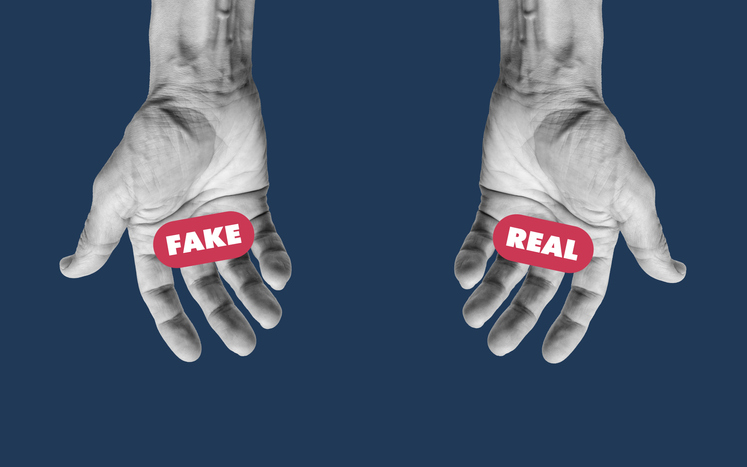A “deepfake” is a video, speech, soundbite or image that appears real but isn’t. It’s one of the unfortunate byproducts of the increasing capabilities of artificial intelligence that we will have to deal with.

But it doesn’t require artificial intelligence to generate deepfakes; natural (human) intelligence has been doing it for years. How else can we explain phony fun on Facebook, Photoshopped images on Instagram and keyboard courage on Twitter? Even flash mobs, as entertaining as they may be, are contrived.
There has always been a lot of “fake” in the “real” world, from fake eyelashes and tattoos to fake plants and diamonds. When my wife and I were newly married, we filled our home with laminated furniture that used synthetic material to mimic the look of wood (with each nick, we learned there’s a reason they call it “veneer”). But now anyone can install faux stone cladding on their fireplace or fake grass in their front yard.
Today, people value how something appears more than what it is. But that’s a dead end; tautological as it may be, things that aren’t lasting will not last. There’s a reason medieval cathedrals still stand while mid-20th-century brutalist buildings crumble.
Real lessons on faux for leaders
That’s a lesson aspiring leaders should take to heart. Yes, you can fool some of the people some of the time, but as lovely as that faux stone may look when your houseguests realize it came not from a quarry but a factory, they’ll draw their own conclusions. It’s the same with phony grass — it looks so out of place in December because it is out of place in December. Whether or not people driving by your yard process the thought, it will be disconcerting to them.
The desire to lead is a powerful human motivation partly because of the respect we confer on leaders. But it’s one thing to have earned respect and another to create the appearance of it. We are all tempted to exaggerate our accomplishments and capabilities, and we can easily rationalize that we will get away with it. But it’s not difficult to smell a disingenuous LinkedIn bio from a mile away (pro tip: using the term “personal brand” is a dead giveaway).
The stakes are even higher within our workplaces, where we can’t fool any of the people any of the time. One of the reasons demonstrating vulnerability can accrue to the benefit of leaders is that it reveals their human fallibility, something all but the most manipulative among us would never think to contrive. It feels real, and that feels good.
Weeding out the faux
Throughout a four-decade career in marketing, I’ve worked with my share of people who want others to think they know more than they do or have accomplished more than they have, taking credit for work with which they were merely involved. They may not say “I did that” when those who produced the insight or idea were down the hall from them (or, ahem, at their ad agency), but they’re more than content to imply it.
My firm happily avoids these people by working with what we call “humbled owners” — those for whom some circumstances have chastened them, know what they don’t know, and take ownership of their challenges. We’ve even designed our website to weed out the faux, so we don’t meet many prospects we would describe that way. When we do, it quickly becomes evident that we’re not a match.
A shrinking world and expanding technology make it easier to appear to be something you’re not or virtue signal to continually wider circles of influence. But real people can tell who truly cares about real people, and while you may be able to fake it for those far away, you can’t with those close to home. And the closer they are, the more they matter.
It’s one thing to use a Zoom background that suggests you’re on a tropical island instead of in a windowless room because everybody is in on the joke. But attempting to “deepfake” your credentials, capabilities or accomplishments will likely come back to bite you, whether you know it or not. Artificial intelligence may never fully grasp the danger of being disingenuous, but human intelligence always will.
Steve McKee is the co-founder of McKee Wallwork, a marketing advisory firm that specializes in turning around stalled, stuck and stale companies. McKee is the author of “TURNS: Where Business Is Won and Lost,” “When Growth Stalls” and “Power Branding.”
Opinions expressed by SmartBrief contributors are their own.
____________________________________
Take advantage of SmartBrief’s FREE email newsletters on leadership and business transformation, among the company’s more than 250 industry-focused newsletters.
